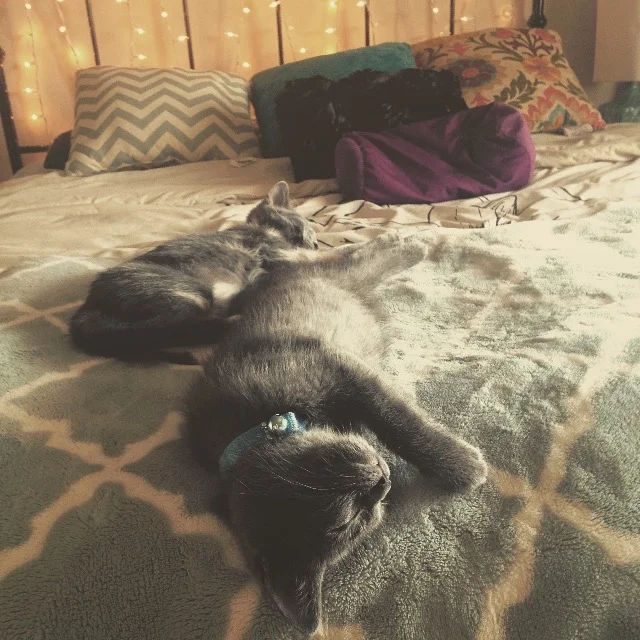A Lesson in Grief
When I finally graduated, I was more than ready to put undergrad behind me. I had two degrees and an internship; I had written two theses, led ministries and coordinated events – you should’ve seen my resume! The five years I spent in college were some of my busiest, most challenging, and most fulfilling years, and I was excited to enter the “real world.” Looking at the things I accomplished over those years, I felt fully alive and ready to tackle my hopes, one after another.
The weeks following graduation, I put in over 100 applications to dozens of companies, resulting in 22 interviews, five of which were in person, but every last one came back with an obligatory apology and a “no thanks.” My resume barely fit on a single page and yet, time and time again, I was met with rejection, apologies, and a cold handshake.
The transition out of college was a harder one than I expected. Already I was discouraged, confused as to how I could be on top at school and then come home and only see failure; hadn’t I done enough?
And then, in early July, my father died. I had assumed I would have a job sometime mid-summer, but with the grieving process looming in front of me, how could I fathom going to work?
So, like anyone who has had suffered a huge loss, I simply shut down. I spent weeks full of to-do lists that were never completed, or to-do lists that were never written because I knew with certainty I would never even look at it. The short, random bursts of energy I did have resulted in purging my closet of belongings that I thought didn’t suit a woman in my state of life (that is, single, living at home, no job – but I saw that as “adulthood”) or culminated in a hurried decision to travel to several states away on a whim, which eventually lead to me totaling my car on a mountain pass in the rain.
I decided to see a therapist; surely, I owed it to myself to see someone to help me through the stages of grief. But in my first session with her, I realized that for months I was not grieving only my father’s death in July, but even before my dad died I was mourning my death upon graduation. You see, I had been grieving a loss of my own identity, because what I defined myself by in college were the things that I had accomplished. I defined myself by the things I did. And, when I stopped doing, I felt like an empty, useless version of myself.
That session with the counselor was eye-opening to me. Honestly, by the end of the hour, I believe she was happy to be rid of me, and I was happy to leave. Nothing really seemed to be wrong to her! Everything with grieving my father was progressing as normal. Could it be that I was doing better than I believed?
I didn’t go back to therapy. I instead decided then to change my perception, radically and quickly, of myself and my life. I told myself I would no longer define myself by the things that I accomplish (or worse, don’t accomplish) and would instead define myself by who I am. I am a daughter, a sibling, a friend. I am a writer, a college graduate, and I am a dreamer with big plans for my future, despite the multitudes of rejections and troubles I faced in the first few months after graduation.
I’m hesitant to say this lest anyone misunderstand me; grieving my father has been hard. But I am also able to say that grieving my father became easier once I stopped grieving myself. And whether college graduates or otherwise, whether you are a student still or years removed from school, we are all grieving something. Some are grieving the loss of friends, relationships, homes, jobs, or dreams that will never be realized.
And grief is hard work. A friend once laughed when I told her that grief is a full-time job, thinking I had made a joke, but it is! It’s not a job you can leave at the office once the clock strikes five; it follows you, it permeates just about everything. Nothing changed until I learned to cut myself some slack. I am going to feel discouraged, I am going to fail, and I am going to grieve for a while, but I have nothing to prove to anyone and no reason to define myself by what I do, because that will only add to my troubles when I need a break from the hard work of doing or when my doing isn’t enough.
Defining myself by what I am has completely changed my perspective. I won’t say that it changed my life like magic, but I will say that, considering that I am the one in charge of my own life, knowing who I am and what I can do, as well as when I need a break, has made all the difference.
[Photo by Julie Bloom.]












As I get older I realize that each new year is like a game of Russian roulette. The odds are good that everything will be okay, that they year will go well; after all, I’m smart, intrepid and a hard-worker. Things should be fine.
But then there are those years when everything goes rogue. The bullet years. 2015 was a bit of a bullet year for me. But the thing about the bullet years is that they injure you, but you heal, you grow and you change. And at the end of it all, nothing is the same.
On New Year’s Eve last year I was talked into spending way too much money to watch a couple of guys play dueling pianos. It was a night of hilarity and champagne. Fall of 2014 had been one of the worst patches of my life, so when the clock struck midnight in downtown Fort Worth and all of the drunk people around me started singing "Auld Lang Syne," I started to sob. Not a lot. Just a little. Mostly because I was bone tired, but also because "Auld Lang Syne" is just about the saddest song for what’s supposed to be a happy occasion. Also because I hadn’t spoken to my best friends in a while. All lived in Houston. One was married, one was engaged and one had convinced me to spend way too much money to watch of couple of guys play dueling pianos. She’s a champ, though. She drank an entire bottle of champagne “because you’re designated driver Rachel, I’m doing you a favor.”